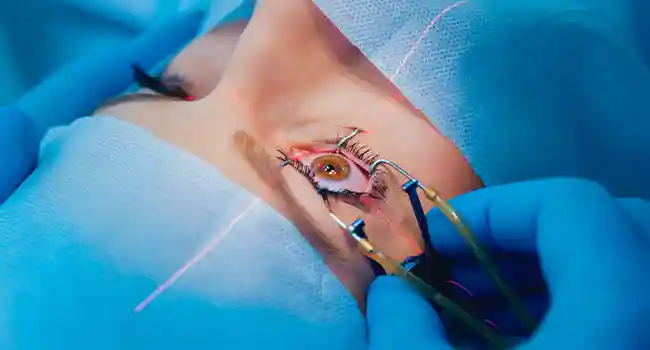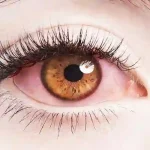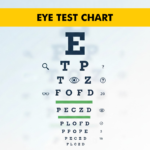How many times have you thought of getting rid of your glasses by getting corrective eye surgery done, but decided against it? Trust us, the indecision happens to the best of us! It is either because we are too scared to go for it or skeptical about which procedure to go for. The whole decision-making may be a little overwhelming, considering the number of corrective surgery options available – LASIK surgery being one of them.
Through this article, we will give you all the necessary information regarding LASIK surgery— to help you make the final decision.
What is LASIK Eye Surgery and How does it Help?
LASER- Assisted in-situ Keratomileusis eye surgery or LASIK eye surgery is one of the best and most popular options in the category of vision correction surgeries. LASIK surgery is a refractive eye surgery, focusing on the cornea so that the light is focused on the retina; thus, correcting the blurred vision.
LASIK surgery helps people with myopia (nearsightedness) in which near vision is clear and far vision is blurry, hyperopia (farsightedness) in which far vision is clear and near vision is blurry; and astigmatism in which both near and far vision is affected.
All these conditions cause refractive changes in the eye, thereby causing defective or blurred vision. LASIK surgery corrects these refractive changes by refocusing the light rays on the retina.
Benefits of LASIK surgery
After knowing a little more about LASIK surgery, a common question that naturally comes to our minds is, ‘Is LASIK surgery worth it?’ So to answer that question, let’s go through its benefits.
- LASIK surgery is one of the most popular options when it comes to vision correction, and the prognosis rate is significantly high. Studies prove that more than 95% of patients have got satisfying results after the surgery.
- Pain and other complications arising after LASIK surgery are a lot lesser as compared to other procedures.
- Previous studies also show that after LASIK surgery, a person can achieve better than 20/20 vision.
- As your vision improves significantly after LASIK surgery, you may not require glasses or contacts at all. However, when your vision changes with age, you may have to use reading glasses, but your doctor can adjust your vision.
Are there any Risks following LASIK Eye Surgery?
Is LASIK safe? This is another question that most of you must be wondering about. Unlike other surgeries, LASIK surgery has minimal uncertainty. In this particular part, we will go through some of the LASIK eye surgery risks.
- LASIK surgery may cause a temporary decrease in tear production leading to dry eyes.
- Glare and double vision are common risks following LASIK surgery.
- Under Correction or Overcorrection of the eye may happen during the surgery. Moreover, both conditions are treatable.
Is LASIK Eye Surgery The Right Procedure For You?
Normally, your doctor will decide if the surgery is right for you, depending upon a thorough examination of your condition. However, the following are some scenarios in which you should avoid going for LASIK eye surgery –
- Pregnancy and breastfeeding
- Children below 18 years of age
- Eye conditions such as glaucoma
- Thin or uneven retinas
- Conditions like diabetes, rheumatoid arthritis, etc.
It is also vital to choose the right surgeon and talk to them about the procedure to clear any further doubts.
How can Centre For Sight help?
Centre For Sight is a chain of eye care hospitals established in 1996 by Dr. Mahipal S. Sachdeva (Ophthalmologist). We are a leading provider of LASIK eye surgery and have a reputation in personalized patient care with leading doctors and healthcare workers that do their best to achieve the expected results and patient satisfaction.
Our team works dedicatedly and efficiently to provide you with the best eye care options and serve you with the correct treatment.
Article: LASIK Surgery: Is it safe and should you get it?
Author: CFS Editorial Team | Jun 10 2021 | UPDATED0 4:10 IST
*The views expressed here are solely those of the author in his private capacity and do not in any way represent the views of Centre for Sight.





